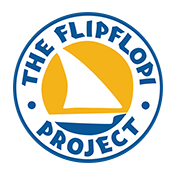East Africans: Let’s Unite For Change
Together with ALN Kenya and Sustainable Inclusive Business today we launched a report uncovering the need to adopt streamlined legislation to manage plastic pollution throughout the East African Community (EAC).
The goal of the report is to promote a better understanding of existing Single-Use Plastics (SUPs) regulations and lay the groundwork for the adoption of streamlined legislation and collaborative action within the EAC to regulate plastics production, support waste management, and eliminate unnecessary SUPs at a regional level. The report outlines the current state of affairs of the policies, regulations, and laws that address the harmful effects of SUPs in East Africa.
The report highlights the existing efforts the EAC has taken to combat plastic pollution and is timely in its release as it comes before the fifth session of the United Nations Environment Assembly (UNEA 5.2). The assembly held in Nairobi from February 28th to March 3rd, 2022 provides a unique opportunity for governments to commit to the establishment of a UN global treaty on plastic pollution that the world has been calling for.
We know plastic pollution is a major problem for the global environment. Here are some facts:
300 million tonnes of plastic waste is produced annually
Half of all plastic products are designed for single use.
At least 14 million tonnes of plastic enter the oceans each year.
While data on the extent of plastic pollution on the African continent is still limited, 34 African countries have passed legislation prohibiting the use of certain SUPs, with varying degrees of implementation. However, while legislation and implementation are spotty, the report highlights the need for binding legislation and cooperation to tackle the global plastic pollution crisis.
To combat this, we’ve partnered with ALN Kenya to champion the legislative agenda at an EAC level through the drafting and introduction of a legislative framework to ban the use and manufacture of specific single-use plastics in the EAC to be presented before the EAC Legislative Assembly for consideration. Add your name to the petition to support the bill here.
As the EAC economies grow, we are offered a range of opportunities to rethink single-use plastics and recycling. We’re in a position to develop new production, consumption, and disposal models that are focused around a closed-loop model. This model takes us away from the current consumption and destruction model and can promote community-led closed-loop waste management initiatives to tackle this global issue at a local level while creating new industries and employment opportunities.
Read the report to see what other recommendations have been suggested to allow us to unite and battle plastic pollution together.
If you'd like to stay up to date with Flipflopi events, milestones and achievements hit the button below to join our non-spammy mailing list!

